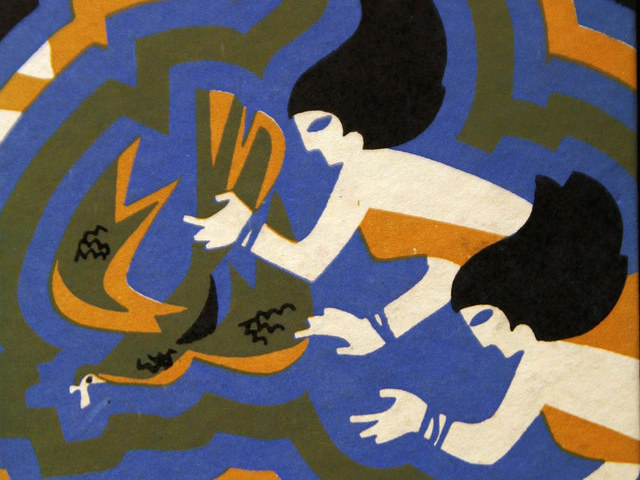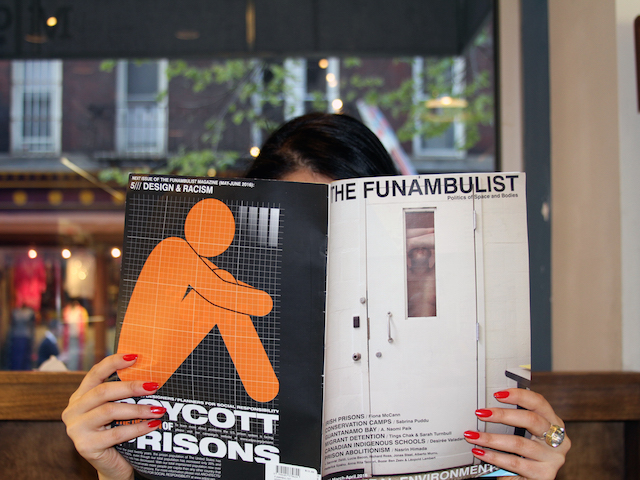Remember that time I asked for your opinion on my hijab? Oh right, never happened.
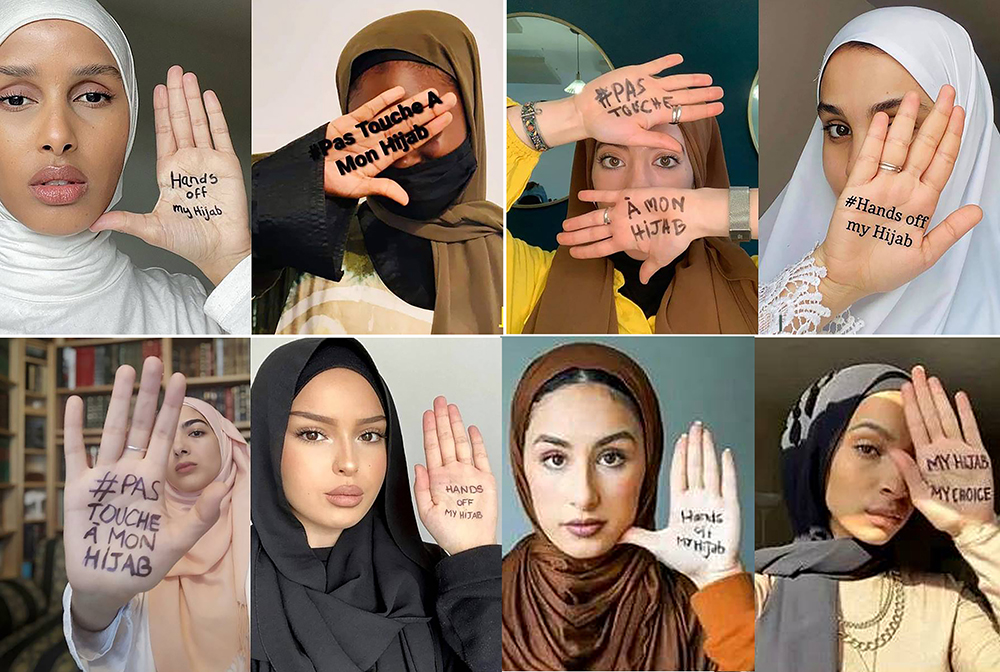
June 10, 2021
A lousy conversation that I think about too often took place at one of my previous jobs in downtown Manhattan. There was an elderly man who worked in my department – a little weird but relatively friendly, constantly sharing stories that were TMI, a member of several liberal political groups, and white. On one unfortunate afternoon, he and I were heading out of the office around the same time. We exited leisurely, sharing a pleasant conversation and lingering outside the building to finish. When we were ready to separate, he smiled widely.
“You know what, Ayesha? This was such a great conversation. You’re very friendly.” He seemed surprised.
I smiled back, slightly confused. “Oh, thanks! I guess? Had I come across as unfriendly to you before?”
“No, no! It’s just –” He then proceeded to gesture vaguely towards my head, his eyes lingering on the scarf wrapped around my face. “You being a Muslim woman and all, I didn’t know if you’d be the type to talk to people and stuff.”
I could feel everything in my body come to a screeching halt. It was one of those, Did-they-just-say-that-bigoted-thing?-I’m-not-crazy-or-imagining-it,-am-I? moments. An instance of absolute yet highly controlled fury, lest the man on the opposite end see he had impacted me so sharply. In an even voice, trying to hide any slivers of anger, I asked, “Why would you think that?”
He went for the usual suspects – the media, ISIS, Afghanistan, blah, blah, blah. Although I had a train to catch, I stood there and politely deconstructed each of his arguments so he could walk away a little less ignorant than before. He certainly had rebuttals, but I could ultimately see a light smile materializing on his face, him probably thinking Wow, I guess Muslim women aren’t oppressed after all!
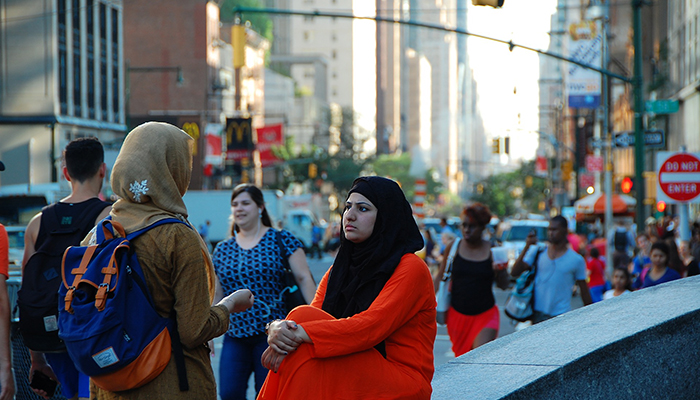
Once satisfied, he thanked me for the conversation and went on his merry way. Meanwhile, I sat on the one-hour commute feeling empty inside. I sat at home feeling empty inside. And I went back to work the next day feeling empty inside.
Here was the thing I hated the most, the thing that almost kept me from wearing a hijab in the first place. What is it about Muslim women wearing headscarves that makes Westerners view us as perpetually foreign, meek and submissive, and utterly different from everyone else? These sentiments often result in divergent pathways. There’s the blatantly racist, anti-Muslim violence resulting in hate crimes and attacks. And then there’s the sleazier anti-Muslim rhetoric often shrouded in the language of democracy, freedom, and equality – all purposefully framed as antithetical to Islam. The latter especially allows for the festering of hypocritical, arrogant policies drenched in anti-Muslim sentiment.
In April, the French Senate passed an amendment that would make it illegal for Muslim girls under the age of 18 to wear hijabs anywhere in public. Although the ban still needs approval from the French National Assembly in order to become a law, the move has already been fiercely denounced by leaders across the world as a blatant weaponization of so-called secularism (or laïcité) that explicitly targets France’s Muslim population.
This isn’t new for France – the country has established an alarming pattern of purporting itself as a beacon of liberty, gender equality, and tolerance while stripping Muslim women of the right to choose how they wish to live and dress in the same breath. This recent proposal builds on France’s already-existing hijab bans for women and girls in school.
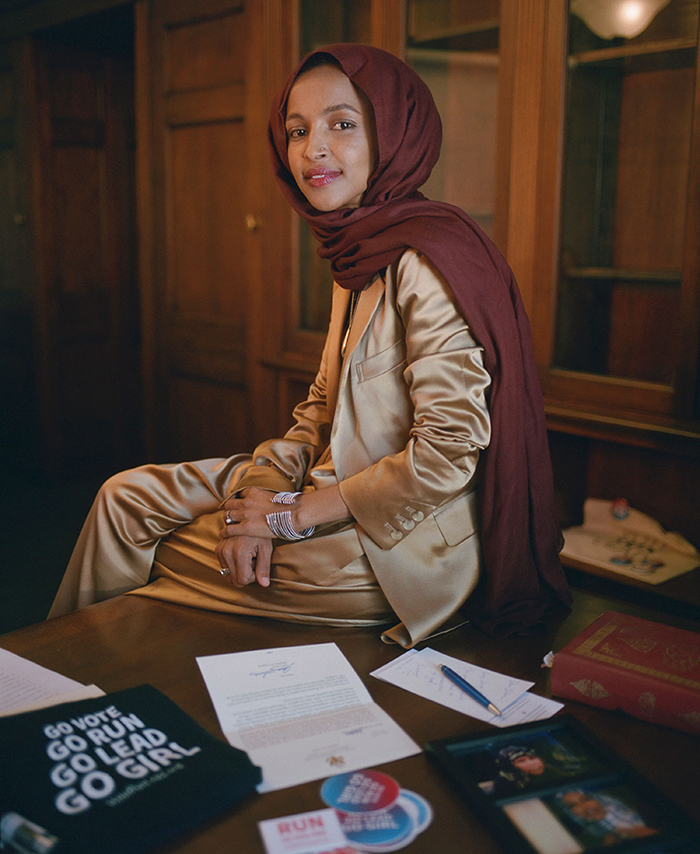
Thus, I don’t waste my time responding to the hysterics of “Does Islam oppress women??!!” anymore. You’re a lost cause if you’re still on that, sorry. I’m more concerned about “Do Western nations vilify Islam and Muslim women as an extension of their long legacies of imperialism, racism, and prejudice?”
Because the answer is yes. A resounding yes.
For uppity Western nations like the U.S., the U.K., and France that so often feel smugly superior to the rest of the world, it’s not enough that they economically exploit Black and brown countries (as well as their own indigenous populations) to greedily surplus their already-heaping wealth. These nations then have the nerve to laud themselves for their supposed ideals, honestly believing they are God’s gift to man, and use this tactfully constructed idea of their divine, savior-complexy essence to justify military occupations, resource extraction, violent crusades, racism, and the overall deceit and treachery vital to imperialism.
It’s Laura Bush making wildly off-base remarks like, “Because of our recent military gains in much of Afghanistan, women are no longer imprisoned in their homes…The fight against terrorism is also a fight for the rights and dignity of women,” two months after 9/11 to justify what was to come of her husband’s years of military action in the region.
It’s an East London primary school attempting to ban Muslim girls under a certain age from wearing hijab and limiting Muslim children in general from fasting on school days during Ramadan for nonsensical “public health and safety” reasons.
It’s France’s historical legacy of colonizing Muslim-majority countries like Tunisia, Lebanon, Egypt, and Morocco for the extraction of resources – and in Algeria, terrorizing their women by ceremonially forcing the removal and burning of hijabs, only to then turn around and point towards Islam as the “terror.” In fact, a 2019 poll found that roughly 45 percent of French people perceived Islam as a threat to their national identity, which undoubtedly begs the question: What is French national identity? Hatred? Bigotry? Cruelty? To all the Emilys in Paris – this is not a good look.
I say “us” for Muslim and “us” for Westerner, because I’m both. That’s the other peculiar thing about this – there are millions of Muslim women who are from and/or living in Western nations. The West and Islam aren’t these diametrically opposed, mutually exclusive or separate entities that are constantly in battle with each other – although pushing that false concept is high on the agenda for many.
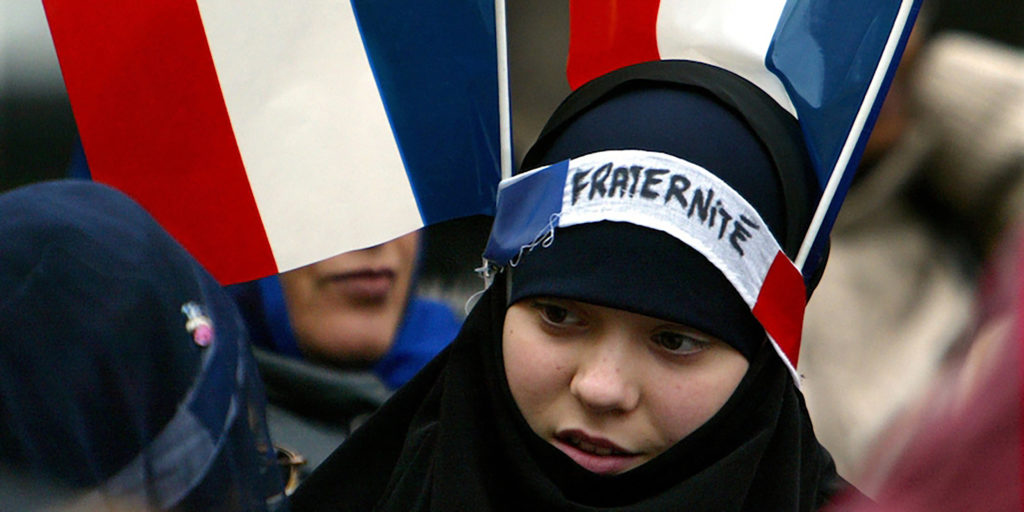
When hijab bans are passed in France, does anyone stop to ask French Muslim women if this is what they want? Have Muslim women in France been ripping off their hijabs in celebration?
Definitely not. On the contrary, many Muslim students have been forced to stop wearing hijabs or drop out of university entirely to keep their hijabs on, and several companies in France refuse to hire any Muslim women who wear hijab. It makes me sick to my stomach. It should make anyone against fascism and oppression sick to their stomach.
When I think of myself a few years ago, I try imagining what might have occurred had someone forced me to wear a hijab when I had not started wearing it yet. I would feel crushed. When I think of myself present-day, I also try imagining how it would feel if someone forced me to remove my hijab after I’ve now chosen to wear it and have been doing so for the last couple of years. Again, I would feel crushed.
This French obsession with hijabs – it’s weird, paternalistic, and spiteful. Most importantly, it has nothing to do with “liberation” and everything to do with asserting dominance over a religious community, fostering racism and demonization, and belittling women who dare to want different things than white feminists. Sarah Haque at VICE asks the million-dollar question: “If feminism, reduced to its core, is the right for women to choose, how can institutions cite feminism as reason for legislation which ultimately limits those choices?”
Western nations have repeatedly demonstrated their lack of care for the real needs of Muslim women. Take the Afghanistan example: Western feminist organizations in the late 90s – forever fixated on hijab and “Third World Women” who needed to be saved from “Islamic fundamentalism” – staunchly refused to acknowledge the massive role America played in creating the miserable conditions of starvation and bombings that Afghan women were living under in the first place.
As explained by anthropologist Saba Mahmood, all they could see were Afghan women’s hijabs, which they could only understand as a symbol of subjugation – thereby completely erasing the identity of Muslim women who found purpose, joy, value, individuality, and pride in the journey and struggle to live in accordance with certain spiritually sanctioned values by wearing a hijab.
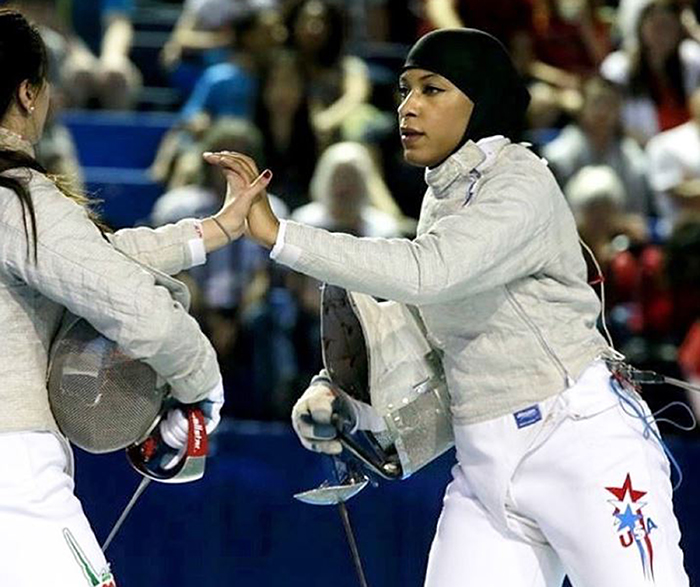
When Muslim women voluntarily wore hijab, it was often belittlingly explained by those same Western feminists as a “false consciousness,” or a pitiful internalization of “patriarchal values”. God forbid that Muslim women could have their own agency, think critically across perspectives, and make a choice for themselves, right? By this logic, Muslim women could only exist in two forms for Westerners: hijabless and therefore free, or hijab-clad and therefore subordinate.
I was choked up watching Ilhan Omar celebrate her first win in 2019. I’m embarrassed to say I never thought a hijab-clad woman could get elected to Congress anytime soon or even in the next 15 years. That is how bleak the state of our progress felt to me.
After all, 2019 was the same year that a hijab-clad Muslim woman of color left her job at BlackRock’s headquarters here in New York City after experiencing rampant abuse, sexism, and religious discrimination – from peers joking about wanting to inappropriately touch her because they purported it wouldn’t “count as sexual harassment” since she was a Muslim woman, to colleagues publicly berating her after returning from short prayer breaks for wasting time and not “working hard enough”.
With Ilhan, the fact that a gloriously unapologetic Muslim refugee from Somalia with an accent – who sometimes wears hijab in a turban-style more palpable to white folks, at other times wears hijab the way I do, and looks fabulous all day and everyday no matter what style hijab she’s in – could win her race in Minnesota, made me want to cry in utter joy for her and the many young Muslim girls in this country who may wonder time and again if they belong here.
My biggest regret in the conversation with that older man was suppressing my anger from him. In retrospect, I wished I could’ve shown him how I felt. It seemed like I was needlessly protecting him from something, when really, he ought to have known how his misconceptions had upset me and he should’ve sat in that ugliness.
I wish I made a big deal of the conversation and unsettled him. Maybe that would teach him that these types of microaggressions were, and still are, unacceptable. His remark had the same spirit as “Wow, you’re so well-spoken,” or “How do you reconcile being so outgoing with your religious beliefs?” or “Your English is really good – I wasn’t expecting that,” and other cringe-inducing comments that I never had to hear until I started wearing hijab.
In response to the news of France’s latest hijab ban, Olympic medalist Ibtihaj Muhammad asserted, “This is what happens when you normalize…anti-Muslim hate speech, bias, discrimination, and hate crimes – Islamophobia written into law.”
She’s not wrong. Are we ever going to just, I don’t know, leave Muslim women alone? Is that day near? Where do Western nations find the audacity to do all this? These are a smattering of questions I think about frequently.
Yet as I reach for my scarf every morning – maybe a viscose today, a pashmina tomorrow, a cotton blend for the weekend – I feel a deep peace that I still do not have the words to articulate, a groundedness that transcends even my own comprehension, a longing that’s rooted at the center of my heart, and a rumbling certainty lodged in what I suppose is my soul.
In these quiet moments to myself, I’m reminded that I know what freedom is, even if countries like France still do not.

